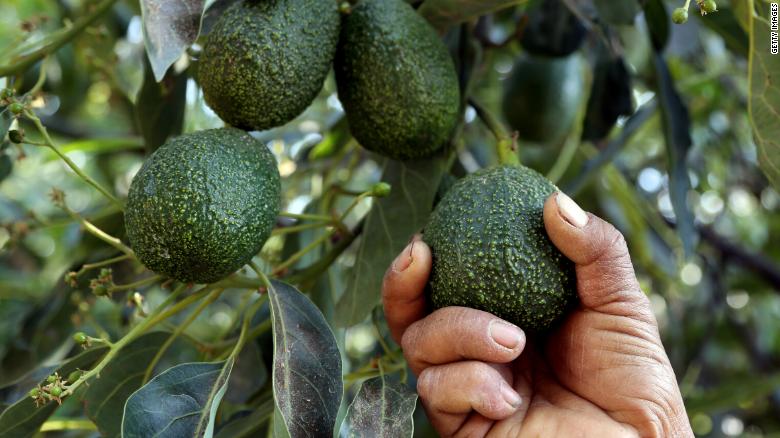America’s refineries really need Mexican oil. Tariffs will hurt their business

Mexico is the No. 2 foreign source of oil to the United States, supplying an average of 658,000 barrels of crude a day in March to ExxonMobil (XOM), Valero (VLO) and other refiners.US Gulf Coast refiners are dependent on Mexico because the country produces heavy oil that can be blended to produce the gasoline, diesel and jet fuel that keeps the economy humming. That heavy oil is already in short supply because of the US crackdown on Venezuela. ]]]]>]]>Tariffs on Mexico — even at the starting level of 5% that President Donald Trump has threatened — will complicate the situation further. US refiners will have to pay up to buy oil from elsewhere — causing energy prices to be higher than they otherwise would be.”If these tariffs go ahead, it would be wildly at the detriment to US refiners,” said Michael Tran, managing director of global energy strategy at RBC Capital Markets. “It will escalate the shortage of heavy barrels — at a time when you arguably need it the most.”‘Very few alternatives’The concerns underscore the complex energy industry’s continued reliance on foreign oil despite record-high American production. The problem is that not all crude is created equally. While the United States is now the world’s leading producer of oil thanks to the shale boom, most of those barrels are very light. That high-quality crude is a poor match for the Gulf Coast’s decades-old refinery system. Shale oil is blended with heavier barrels to allow refiners to maximize production.US refiners used to rely on Venezuela for those heavy barrels. However, US oil imports from Venezuela have vanished because of the Trump administration’s sanctions on PDVSA. The United States imported zero barrels of oil from Venezuela last week, down from 517,000 barrels per day a year ago, according to the Energy Information Administration. Normally, the United States would turn to Saudi Arabia, which also produces heavy barrels. But Saudi Arabia has slashed shipments to the United States as part of OPEC’s effort to boost prices. Canada, another major producer of heavy crude, is already the leading source of foreign oil into the United States. And a shortage of pipelines from Canada will make it hard to send much more.”There are very few alternatives in the short-term,” Ryan Fitzmaurice, energy strategist at Rabobank, wrote in a note to clients. Refiners urge Trump not to tariff MexicoUS refiners will be forced to either pay the 5% tariff for Mexico’s oil or, more likely, pay up for heavy barrels elsewhere. Some of that oil will probably come from Colombia, Brazil, Ecuador, Iraq and Kuwait — countries already shipping heavy crude to Asia and elsewhere. “You’re going to have to compete tooth and nail with countries like China,” said RBC’s Tran. Fitzmaurice warned that the tariffs on Mexico will “depress” refining margins and could limit the amount of gasoline, diesel and jet fuel being produced. The energy industry has joined other business groups in urging Trump not to add Mexico to the global trade war.”Imposing tariffs on Mexican products, particularly crude oil, could raise energy prices for US consumers, disadvantage the US refining industry and jeopardize passage of USMCA — all bad outcomes,” Chet Thompson, CEO of the American Fuel & Petrochemical Manufacturers, said in a statement on Friday, referring to the new trade deal that the Trump administration negotiated with Mexico and Canada designed to replace NAFTA.Shell, the American subsidiary of Royal Dutch Shell (RDSA), is the leading US importer of Mexican crude, importing more than 131,000 barrels per day this year, according to ClipperData. Valero has imported more than 128,000 barrels of Mexican oil per day this year, according to ClipperData. Plains All American (PAA), which owns energy terminals, imported 83,000 barrels per day from Mexico. Other leading US importers of Mexican oil include Phillips 66 (PSX), Lyondell (LYB) and ExxonMobil.Tariffs on Mexico will be a “headwind” for US Gulf Coast refining activity, according to Stewart Glickman, analyst at CFRA Research. There are 140 gas stations in Mexico operating under Chevron’s Texaco brand. Chevron (CVX) plans to grow to 500 gas stations in Mexico by the end of 2021. Chevron also owns and operates deepwater drilling properties off the coast of Mexico. “Chevron supports free and fair trade, and believes the imposition of new tariffs should be balanced against the potential for retaliatory actions that impair the development of new markets,” Chevron said in a statement.Boosting gasoline prices?The impact on energy prices is complicated.US oil prices plunged to a three-month low last week due to fears about how the trade war will dent energy demand by slowing the global economy. Gasoline prices, which move with a lag, should also come down. But American drivers shouldn’t celebrate just yet. Analysts warned that the price drop may be limited by the Mexico tariffs. US refiners, forced to pay up for heavy crude, will pass along at least some of the costs to gas stations.”The drop at the pump may not be as extreme as it otherwise would have been,” said Matt Smith, director of commodity research at ClipperData. The catch would be if Mexico retaliated by imposing tariffs of its own on US products. More than half of all US exports of gasoline in March went to Mexico. Significant tariffs by Mexico could halt that flow.”That would leave stranded in the US with nowhere to go, weighing on prices. That would be a boon to Trump,” said RBC’s Tran.







